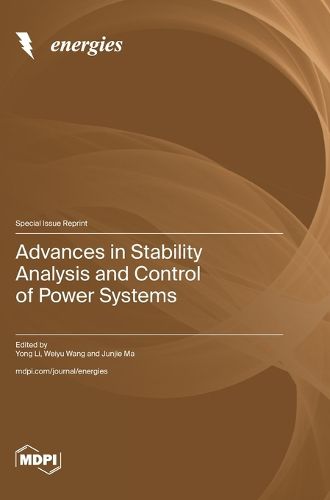Readings Newsletter
Become a Readings Member to make your shopping experience even easier.
Sign in or sign up for free!
You’re not far away from qualifying for FREE standard shipping within Australia
You’ve qualified for FREE standard shipping within Australia
The cart is loading…






This title is printed to order. This book may have been self-published. If so, we cannot guarantee the quality of the content. In the main most books will have gone through the editing process however some may not. We therefore suggest that you be aware of this before ordering this book. If in doubt check either the author or publisher’s details as we are unable to accept any returns unless they are faulty. Please contact us if you have any questions.
Power electronics-interfaced devices have brought significant advantages in terms of flexibility, efficiency, and sustainability to modern power systems. However, PEDs have also profoundly changed the dynamics of power systems and introduced complex challenges, particularly in the areas of stability, control, and fault management. Modern power systems are increasingly characterized by reduced system inertia, weak damping, nonlinear interactions, and multiple time scale dynamics. These factors exacerbate challenges such as transient stability, voltage stability, frequency regulation, and fault detection. Furthermore, the rise in stochastic power generation and consumption introduces uncertainties that complicate the analysis and control of system behavior. Addressing these challenges requires innovative approaches that blend theoretical insights with practical solutions.
This Special Issue presents a collection of cutting-edge research that addresses these challenges from diverse perspectives. From enhancing stability control mechanisms to advancing fault recovery strategies and leveraging data-driven tools, these studies provide a comprehensive overview of state-of-the-art approaches being developed to address the complexities of power systems with high PED penetration. By combining theoretical advancements with practical applications, this collection aims to contribute to the development of resilient, efficient, and sustainable power.
$9.00 standard shipping within Australia
FREE standard shipping within Australia for orders over $100.00
Express & International shipping calculated at checkout
This title is printed to order. This book may have been self-published. If so, we cannot guarantee the quality of the content. In the main most books will have gone through the editing process however some may not. We therefore suggest that you be aware of this before ordering this book. If in doubt check either the author or publisher’s details as we are unable to accept any returns unless they are faulty. Please contact us if you have any questions.
Power electronics-interfaced devices have brought significant advantages in terms of flexibility, efficiency, and sustainability to modern power systems. However, PEDs have also profoundly changed the dynamics of power systems and introduced complex challenges, particularly in the areas of stability, control, and fault management. Modern power systems are increasingly characterized by reduced system inertia, weak damping, nonlinear interactions, and multiple time scale dynamics. These factors exacerbate challenges such as transient stability, voltage stability, frequency regulation, and fault detection. Furthermore, the rise in stochastic power generation and consumption introduces uncertainties that complicate the analysis and control of system behavior. Addressing these challenges requires innovative approaches that blend theoretical insights with practical solutions.
This Special Issue presents a collection of cutting-edge research that addresses these challenges from diverse perspectives. From enhancing stability control mechanisms to advancing fault recovery strategies and leveraging data-driven tools, these studies provide a comprehensive overview of state-of-the-art approaches being developed to address the complexities of power systems with high PED penetration. By combining theoretical advancements with practical applications, this collection aims to contribute to the development of resilient, efficient, and sustainable power.